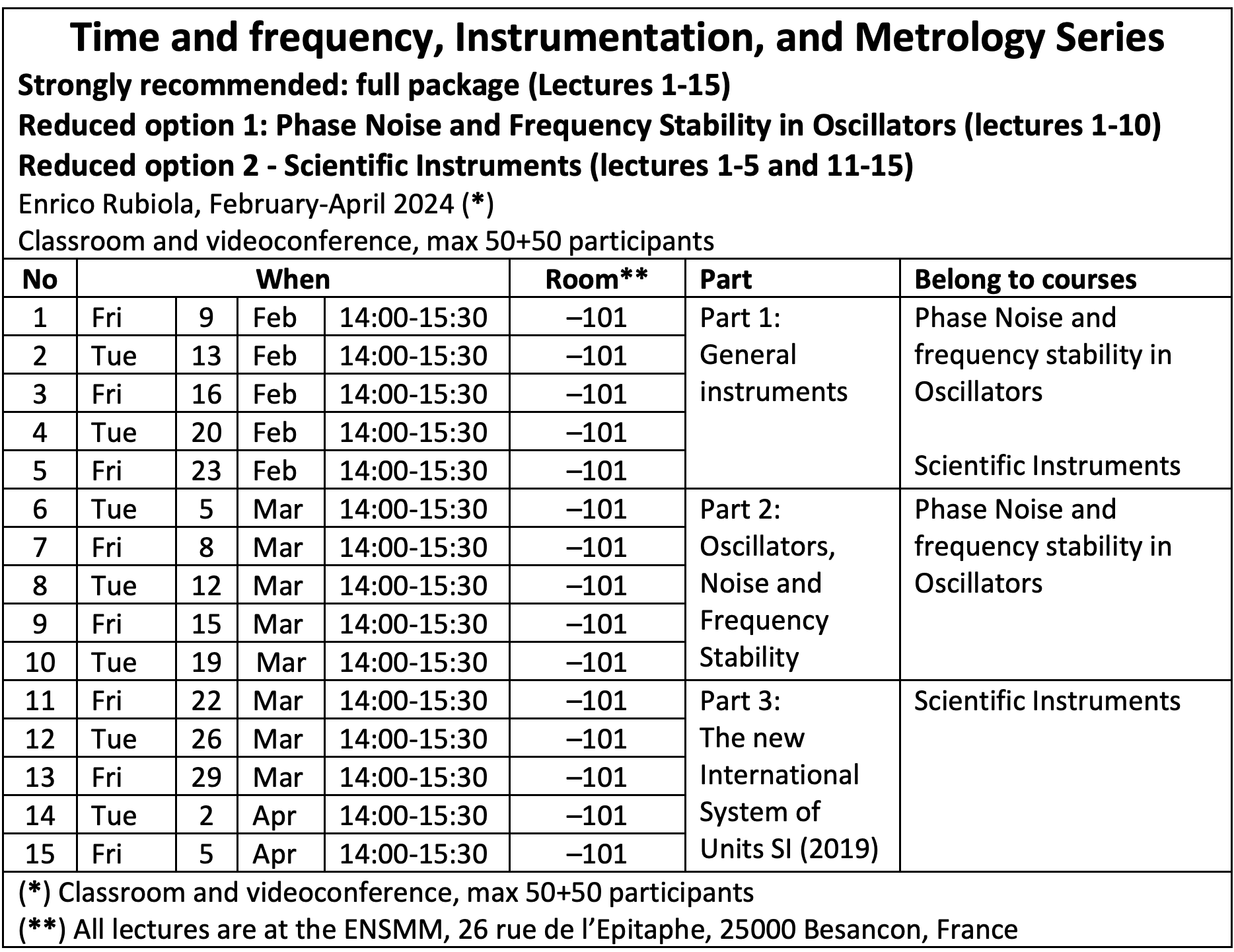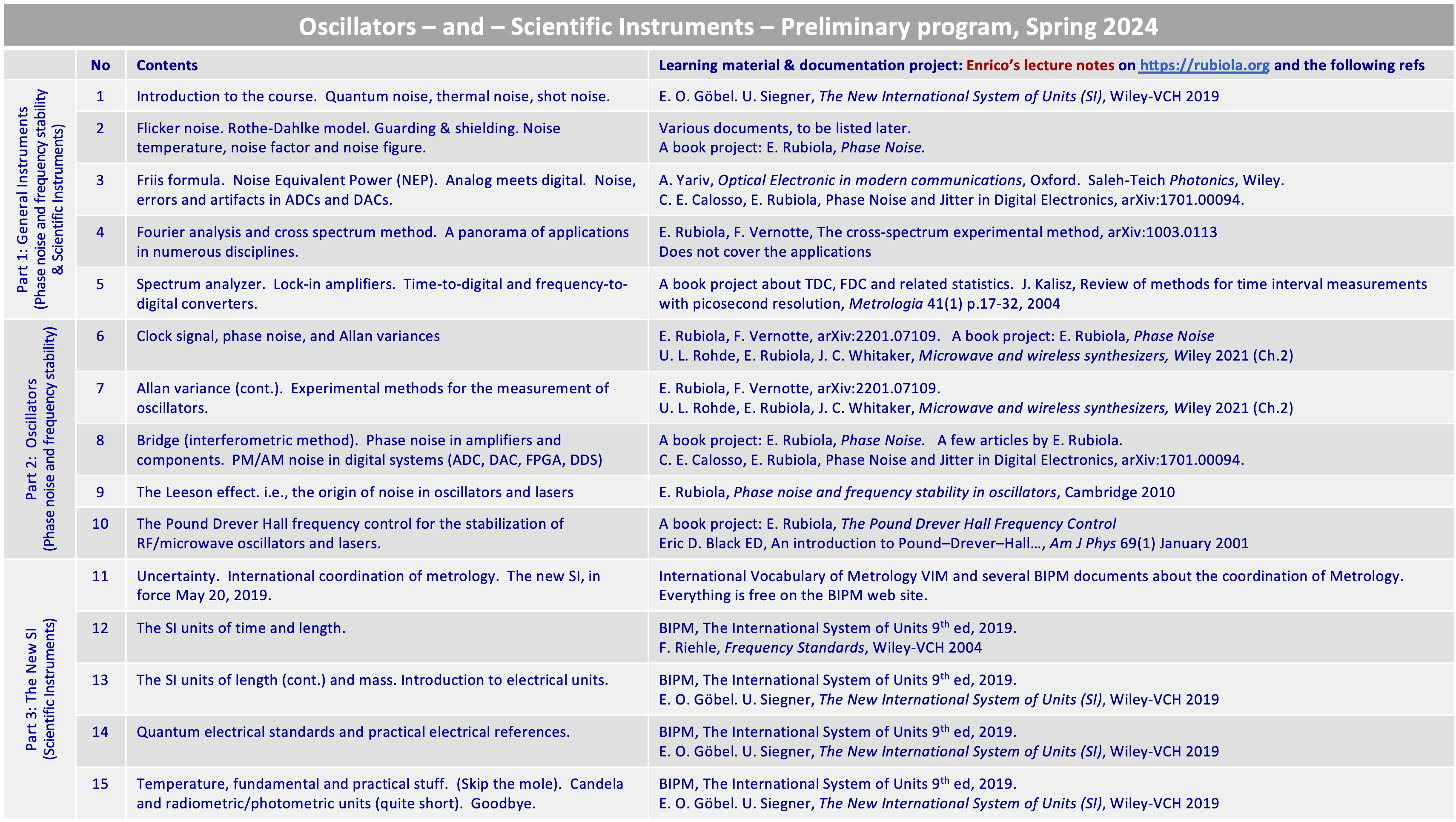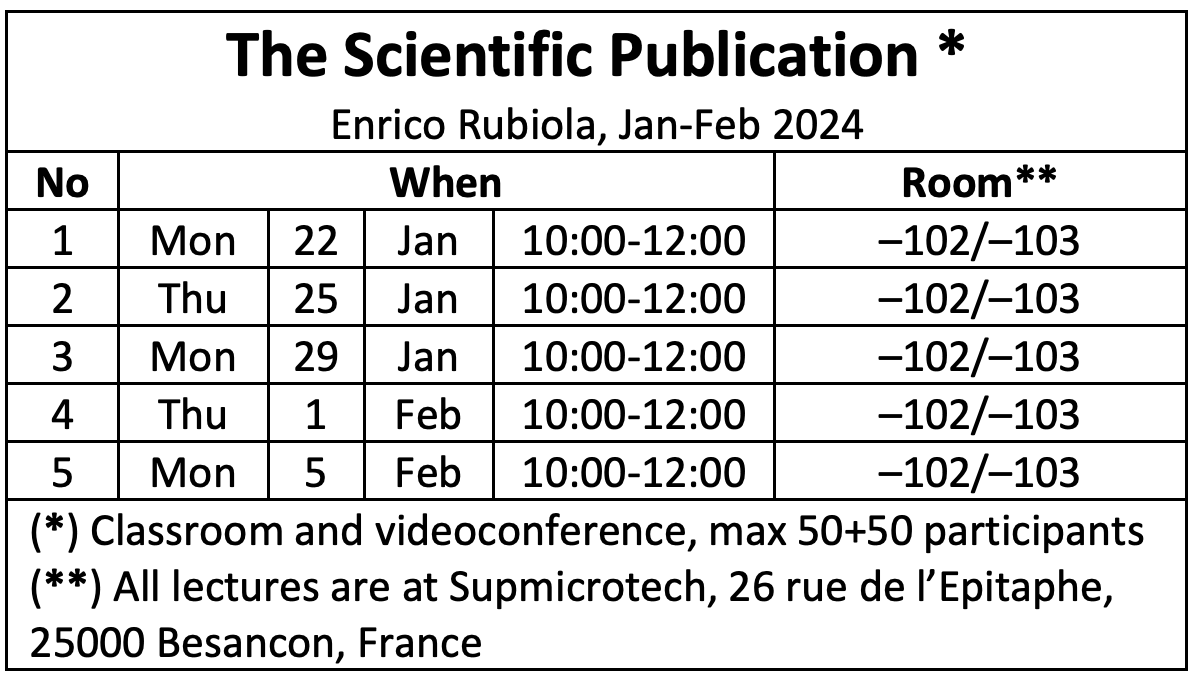Time and Frequency, Instrumentation, and Metrology (3×7.5 hours)
Option A (recommended): The full package (Part 1, 2 and 3, 21.5 hours)
Take Part 1, 2 and 3 (lectures 1-15) to get the secrets of oscillators, together with the foundations of the science of measurement.
Option B: Oscillators, frequency stability and noise (Part 1-2, 15 hours)
Take Part 1 and 2 (lectures 1-10) if you need to know the secrets of stable and low-noise oscillators, how they can be measured, and the systems they belong to. These lectures derive from seminars given at the Tutorial Session of international conferences of time and frequency, and from invited seminars. This option is a must for all the PhD students and young research fellows working on a topic broadly related to time and frequency, including optics and astronomy.
Option C: Scientific instruments (Part 1 and 3, 15 hours)
Take Part 1 and 3 (lectures 1-5 and 11-15) if you are interested in precision measurements, in the subtle meaning of uncertainty, and in the nature of the measurement units we use in all domains of science. This option is a must for young experimentalists (PhD students and postdoctoral fellows) in engineering and physics. The first part is about experimental methods of general interest. The second part is on the new International System, of Units (SI), in force since May 20, 2019.
Registration is required. See above in this page
Most recent learning material
| Part | Lectures | Burden | Download the slideshows |
| _ | _ | _ | Welcome and Introduction |
| 1 | 1-5 | 7.5 hours | General instruments |
| 2 | 6-10 | 7.5 hours | Oscillators and noise (extended) |
| 3 | 11-15 | 7.5 hours | The new International System of Units SI |
Schedule of the next or most recent lectures (Central European Time)


